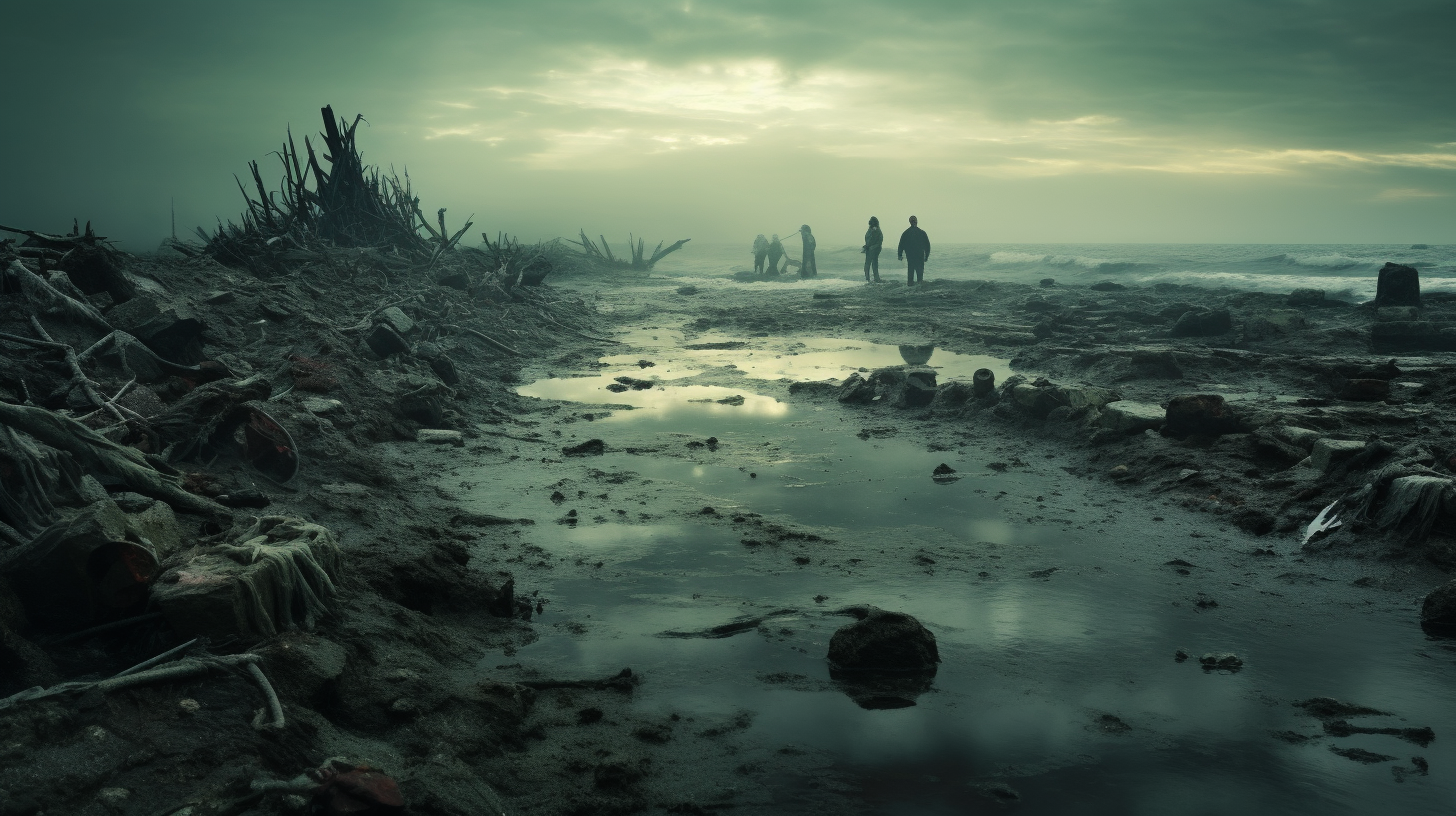The ebb and flow of the ocean tides have long served as a rhythmic backdrop to coastal life. Yet, imagine a world where the tides cease to make their perennial pilgrimage, where the oceans, depleted and defiled, retreat into a skeletal version of their former glory. It’s not the plot of a science fiction novel; it’s the distressing narrative unraveling on our shores today.
In a truth too raw for the fainthearted, we witness the once-vast oceans recede, leaving behind expanses of barren seabeds. We face the unthinkable: the last tide may have already kissed our shores goodbye. This ecological Thanatos, silent and unyielding, has set a dire stage where life, as we know it, ebbs away ‘with nary a whisper.’
It was lesser-known that humanity’s reliance on the oceans extended beyond their beauty and bounties. Oceans once regulated our climate and fostered life, both aquatic and terrestrial. Now, their demise brings a cascade of catastrophic events. The seas’rhapsodic rhythms and life-giving forces have been ground down by the ceaseless grind of pollution, overfishing, and the merciless gyre of climate change.
The visible signs are heartbreakingly clear; beaches lay bare as nature’s mirror reflects our neglect. The former vastness of blue now reveals stretches of cracked earth and tidal pools gasping for life. Thirsty cities that used to draw sustenance from these waters now choke on the irony of their own unsustainable appetites. Marine creatures, once the pulsating heart of our oceans, find themselves ensnared in the web of our discarded plastics, remnants of our inability to cherish what nourishes us. A testament to our previous articles, ‘Oceans Choke on Plastic Legacy’ and ‘Beneath the Waves, Silence Reigns’.
This muted apocalypse unfolds not with a bang but a whimper; the anthems of marine life are suffocated by the debris of human existence—a contrast to the past when the ocean teemed with a chorus of sea creatures, each a participant in the symphony of marine diversity. Now, only eerie silence occupies the abyss and, as one expert bleakly put it, ‘The orchestra is gone; the ocean is still.’
Our coastal marvels, which once inspired poets and painters, now serve as a cautionary canvas. In place of vibrant seascapes, we find sun-bleached coral, monuments to a bygone era of ecological richness. Villages, that would rhythmically sway with the ocean’s whims, now stand frozen, monuments to nature out of sync – living relics to a world that can never be.
Through this bleak lens, we peek at our future; it is undeniable that every receding tide takes with it fragments of our existence, our culture, and the very sustenance of life on Earth. Encounters with this new desolate reality may leave us hollow if not for the promise of lesson learning. The truth may be stark, but within it lies the unnerving urge to take a long, hard look at ourselves. In an age of dystopia, where life ebbs away with the last tide, what remains is the final echo of our collective impact on a world that has borne the brunt of our environmental indifference.
Will the ocean’s cry for help fall upon deaf ears? Or will it pierce the veil of disregard, instilling a sense of urgency before the last whisper of water vanishes into the annals of history?
